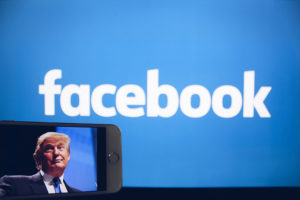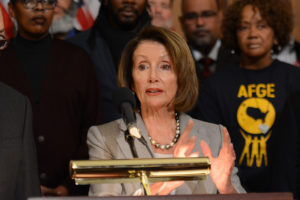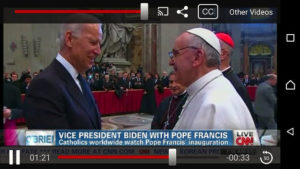
U.S. Senator Elizabeth Warren (D-MA)
Democratic U.S. Senator Elizabeth Warren appeared at a CNN town hall at Jackson State University in Mississippi this past Monday night, moderated by CNN’s Jake Tapper. By numerous accounts, Warren “nailed” her performance. Warren exhibited traits shared by Democrats who have won the presidency: intelligence, empathy, passion and energy.
The question is whether Warren can gain momentum in these early stages of the 2020 Democratic presidential process, to catapult her into the lead, and eventually, to win the Party’s nomination. Currently, Warren sits in about fifth place in the polls (if Joe Biden, who has yet to enter the race, is included). Warren’s principal competition is thought to be Bernie Sanders, as both of them are considered to occupy the left lane of the Democratic field. Sanders, who ran for the Democratic nomination in 2016 and lost to Hillary Clinton, benefits from name recognition. However, Sanders suffers from some heavy baggage, including his 2016 negative attacks on Clinton and the Democratic Party, questionable votes on guns and Russia, a “woman problem,” and old age. Indeed, Warren appeared to distinguish herself from Sanders when she suggested at the CNN town hall that all candidates for federal office release their tax returns. This comes as Sanders, having been asked since at least 2016 to release multiple prior years of tax returns as other presidential candidates do, still has not done so. In short, Warren can be seen as a safe liberal alternative if Sanders stumbles or gets dragged down by his baggage.
At the same time, Warren may be carving out her own, more moderate lane next to Sanders. This could help her in a general election. In this regard, Warren notably gave tempered yet clear answers on several issues at Monday’s town hall:
On reparations for slavery, Warren was asked by an audience member specifically about what “public apology” should be made to African-Americans. Warren responded:
Warren: I believe it’s time to start the national, full-blown conversation about reparations. And that means I support the bill in the House to appoint a Congressional panel of experts, of people who are studying this, to talk about different ways we may be able to do it, and to make a report back to Congress, so that we can, as a nation, do what’s right and begin to heal.
Tapper: Senator, if I could just follow up on Georgia’s question, you said you’re open to a conversation about reparations to the descendants of slaves, and also to native Americans, you also said. Might that include direct payments, direct financial transfer of money?
Warren: So, there are a lot of ways to think about how reparations should be formed, and I noticed, Georgia’s question actually started with just the frame of an apology, right? With the frame of a national recognition. We have a lot of experts around the country, a lot of activists, who have a whole lot of different approaches to it. And I think the best we can do right now, I love the idea of this Congressional commission. Let’s bring people together, and let’s open that conversation as Americans. Let’s see what ideas people want to put on the table, and let’s talk them through. Because I gotta tell you, ignoring the problem is not working.
Likewise, Warren was asked about universal healthcare coverage. She responded:
Healthcare is a basic human right…. Right now, Democrats are trying to figure out how to expand healthcare coverage, at the lowest possible cost so everybody is covered. Republicans right this minute are out there trying to repeal the Affordable Care Act, they’ve got a lawsuit pending down in Texas where they’re trying to roll it back, what they couldn’t do with a vote, they’re trying to do with the courts. HHS [Department of Health and Human Services] every day is doing what they can to undermine the Affordable Care Act…. The first thing we need to be talking about is defend the Affordable Care Act…. Then part two …. For example, let’s bring down the cost of prescription drugs all across the country…. And then when we talk about Medicare For All, there are a lot of different pathways. What we’re all looking for is the lowest cost way to make sure everybody gets covered.
Finally, on the question of whether Warren and some other Democratic candidates are “Socialists,” Warren also portrayed herself as more moderate:
I believe in markets, and I believe in the value that we get out of markets. But, it’s got to be markets with rules. You know, a market without rules is theft. But a market with rules, a market with a cop on the beat to enforce those rules, that’s how it is that small businesses can get a chance to start and grow…. That’s how it is that we get new products.
The trick for presidential candidates in both parties is that, while most of the country on average might be considered moderate, the primary process comes first, and it energizes activists who are more to the left on the Democratic side, and more to the right on the Republican side. It’s possible that Warren as well as other 2020 Democratic presidential candidates could successfully straddle this line. Warren’s responses at the CNN town hall were attention-getting both for not sounding too “Socialist,” and also for sounding like she’s open to great ideas, as a winning Democratic candidate should be.
Photo by ElizabethForMA, used under Creative Commons license. https://is.gd/uKNPIy






